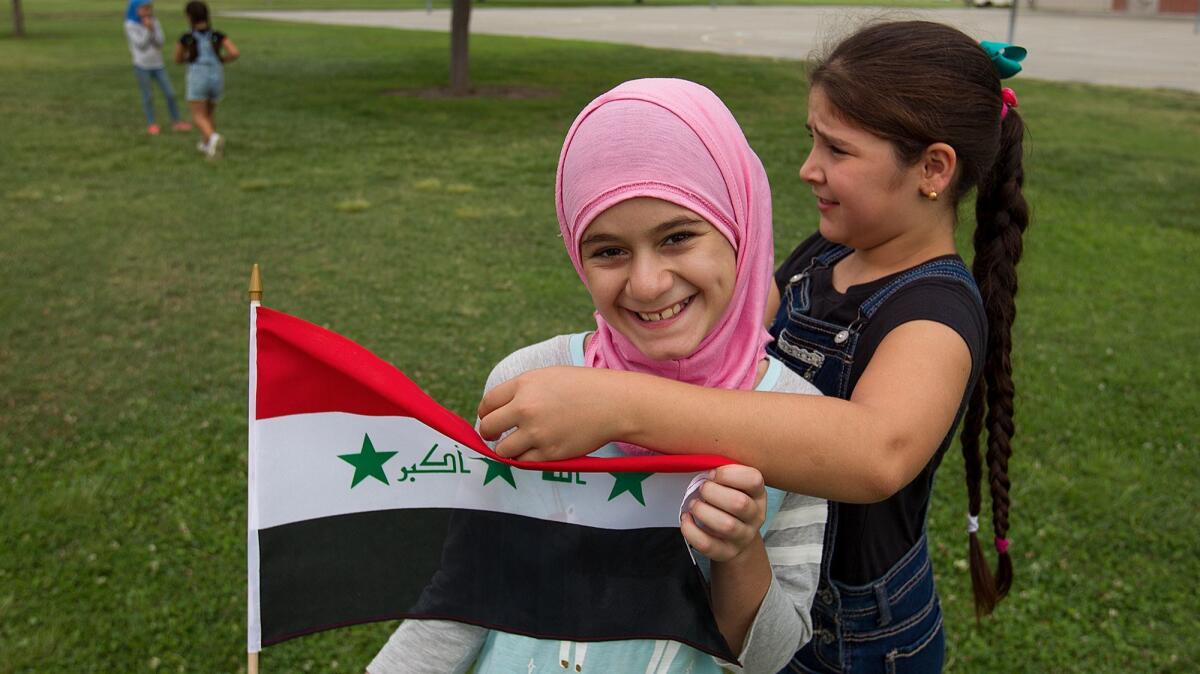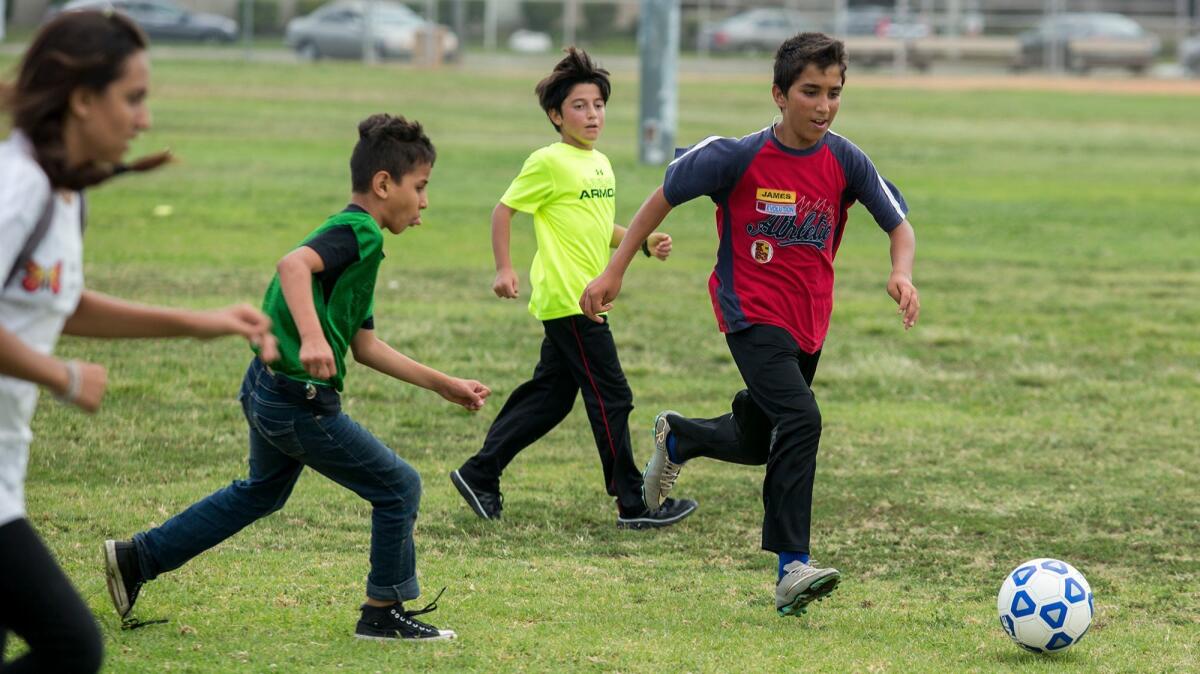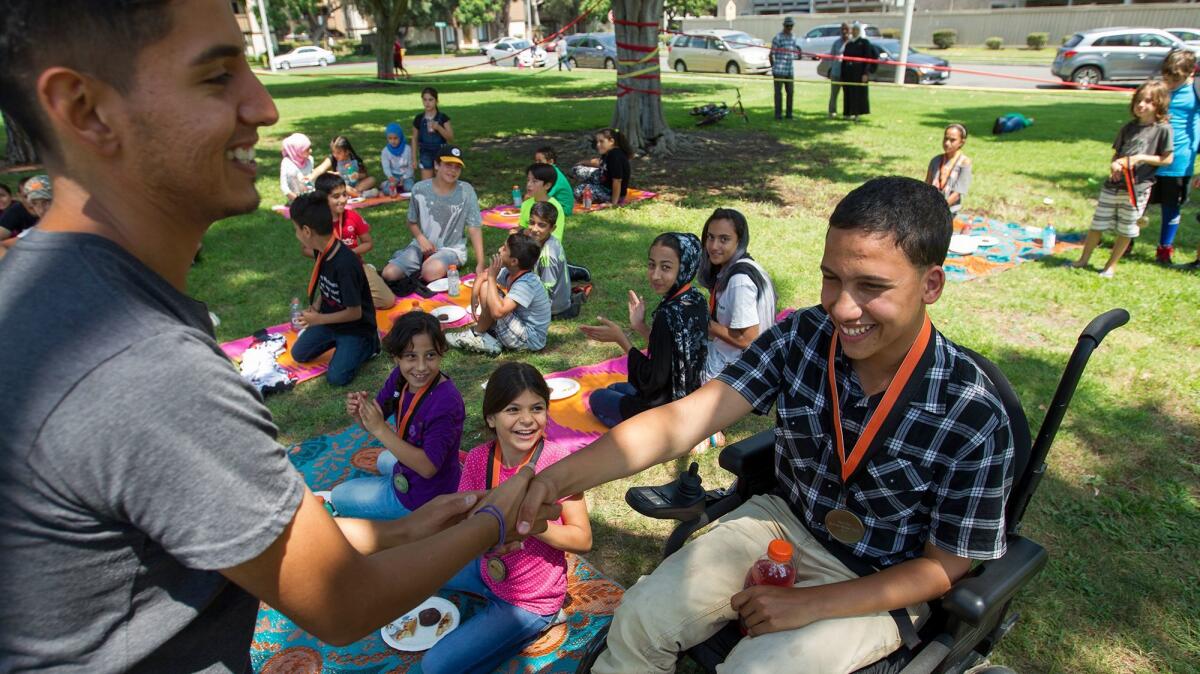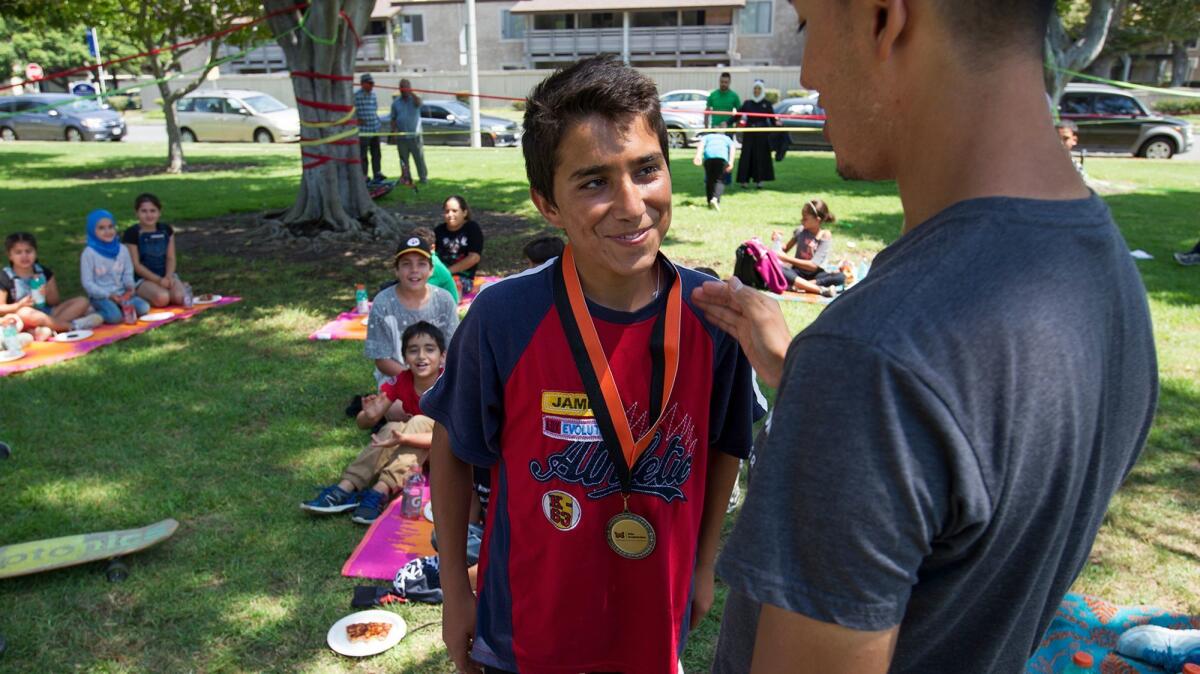Refugee kids in Orange County start friendships on a soccer field

A group of two-dozen children sprinted up and down the soccer field behind Sarah McGarvin Intermediate School in Westminster, kicking the ball and shouting to each other in a mixture of Arabic, Farsi, Pashtu, Spanish and English.
The kids, ranging in age from 5 to 17, are all refugees, born in countries spanning the globe from Syria and Iraq to Afghanistan, Tunisia, Lebanon and Mexico.
“I want to be [Lionel] Messi!” said Ahmad Akbarzada, a 12-year-old from Afghanistan, of the Argentinian forward for FC Barcelona. “I’m taking Messi down!”
The informal game Aug. 23 was part of the appropriately named World Cup Summer Soccer Camp, a six-week program hosted by the refugee resettlement agency World Relief. The last match was that day, and was capped by a medal ceremony and pizza party.

“What I wanted to create was an opportunity for kids to just be kids,” said Jose Serrano, the program’s executive director.
“My experience, as an immigrant myself — I came from Mexico when I was 5 years old — is that oftentimes it’s hard to just be a kid,” he said. “You’re an adult from the moment you step off the airplane or walk across the border.”
Refugee children often face incredible amounts of stress, Serrano explained, and are tasked with adult responsibilities such as becoming a translator for their parents. At the same time, many of their families don’t have the financial resources for extracurricular activities such as camps, tutoring or vacations during the months when school is out.
For Zainab Zabiba, an 11-year-old from Iraq, being able to safely spend time outdoors for hours on end has changed her life.
“When I came here I was so happy because [in Iraq] there’s no playing outside,” she said. “If you want to go outside it’s because you’re going to the store.”
Now, said Zainab, “It’s like we invented playing outside — that’s how it feels like.”

While fun is a top priority for the World Cup Summer Soccer Camp, Serrano said it comes with a number of other benefits, such as leadership and communication skills, new friendships, and practice speaking English.
Zainab and her sister, Tiba, 9, agreed.
When they first arrived in the United States, they were shy and felt nervous starting at a new school in a new language. But after spending time with other refugee children who could confidently express themselves, they also started to become more vocal.
“We saw all those kids are not shy at all,” Zainab said. “In my mind, I was like, ‘I really want to be like them, I don’t want to be shy.’ ”

Throughout the course of the camp, Serrano said that he saw the kids’ confidence and ability to articulate their emotions soar. So when a fight broke out on Wednesday, Serrano sat all the kids down in a circle under a tree, allowing them to talk it out.
“No one is better than anyone,” he told them. “We might be different, but no one is better than anyone. We’re all humans.”
Anna Gnewuch, a World Relief intern and the program’s soccer coach, said the kids are also learning how to transcend their differences in age, ethnicity and language. When the camp started six weeks ago, she explained, the kids wanted to separate themselves by their country of origin.
“They told me, ‘I want an Afghan team, a Syrian team,’ ” she said. “Now they see the strengths in each other and they want to include everyone.
“And that’s been the coolest thing.”
CAITLIN YOSHIKO KANDIL is a contributor to Times Community News.
All the latest on Orange County from Orange County.
Get our free TimesOC newsletter.
You may occasionally receive promotional content from the Daily Pilot.




